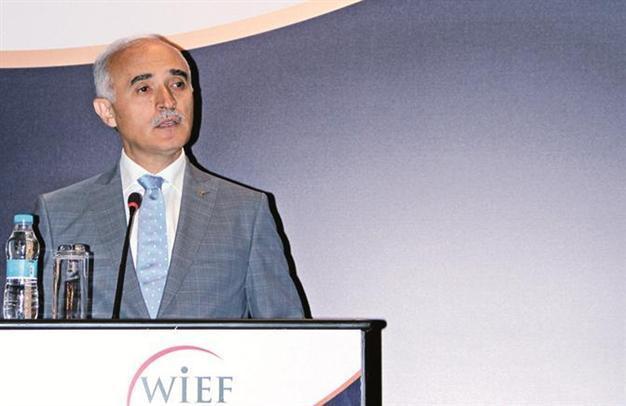'Homo Islamicus' needed to cure problems in modern economy, business leader says
ISTANBUL

MÜSİAD Chairman Nail Olpak says giving prominence to a ‘Homo Islamicus’ could help cure problems in the modern economy.
The top representative of Turkey’s conservative businessmen has suggested the business world should reawaken principles of an Islam-oriented economic actor, homo Islamicus, to bring justice and mercy to the “crooked” economic system.Speaking at a meeting on Islamic Finance in Turkey, Nail Olpak, head of Independent Industrialists and Businessmen’s Association (MÜSİAD), argued turning to justice and mercy, principles that are perceived as the core of Islam, could cure the “current global financial system’s divergence from the aim of creating sources needed to raise the welfare of societies.”
“One of the triggers of the global financial crisis, maybe the most important one, is the human being’s ambition of winning at any cost. This ambition doesn’t regard any ethical, legal or conscientious rules,” he said addressing participants at a meeting in Istanbul.
The total wealth of world’s richest 85 people is equivalent to the wealth of half of world’s poorest population, he said, blaming the homo economicus perception for the world’s current structure.
Homo economicus, or “the economic human,” perceives human beings “as rational and narrowly self-interested actors who have the ability to make judgments toward their subjectively defined ends.”
Against this perception, which caused the current unfairness and income inequalities across the world, Olpak suggested Homo Islamicus, “the Islamic man,” as the solution.
Homo Islamicus is a concept defined on the assumption that the so-called dilemma between modern economy and Islam is false and that the Islam-oriented behaviors and principles can be compatible with the economic system.
“The principles of Islam, which is the religion of justice and mercy, should be understood well, while seeking the solution to recover from this crooked structure,” he said.
“The old perception based on Homo Islamicus should be reawakened within this respect. This perception is an Islamic-Humanitarian perception,” he added.
Noting that Islamic economy and finance had remained at a “sensitivity level” in being examined theoretically, Olpak said the world had been making progress on how to integrate Islamic principles and how to realize them into the traditional economy.
Many Muslim countries, with Malaysia at that top, have recorded remarkable developments, he stated.
















